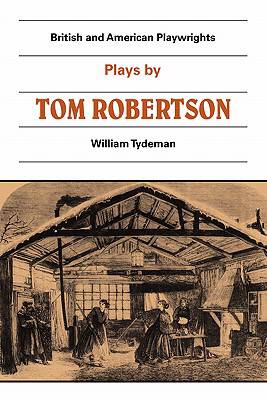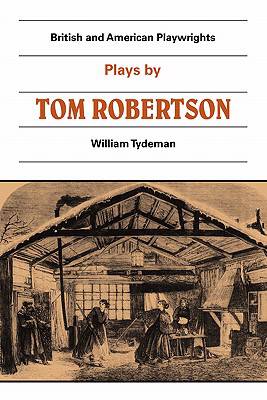
Bedankt voor het vertrouwen het afgelopen jaar! Om jou te bedanken bieden we GRATIS verzending (in België) aan op alles gedurende de hele maand januari.
- Afhalen na 1 uur in een winkel met voorraad
- In januari gratis thuislevering in België
- Ruim aanbod met 7 miljoen producten
Bedankt voor het vertrouwen het afgelopen jaar! Om jou te bedanken bieden we GRATIS verzending (in België) aan op alles gedurende de hele maand januari.
- Afhalen na 1 uur in een winkel met voorraad
- In januari gratis thuislevering in België
- Ruim aanbod met 7 miljoen producten
Zoeken
Omschrijving
'After years of sham heroics and superhuman balderdash, Caste delighted everyone by its freshness, its nature, its humanity.' Thus, after watching a revival in 1897, did Shaw generously recognize the impact made thirty years earlier by Tom Robertson's best-known play. Yet, in spite of the acknowledged importance of these seminal dramas, they are not easily accessible in print, and this edition therefore comprises four of Robertson's most successful comedies: Society (1865), Ours (1866), Caste (1867) and School (1869). Beginning his career as a theatrical hack-of-all-trades, Robertson ultimately found his niche with the Bancrofts at the Prince of Wales's Theatre, establishing a vogue for comedies of everyday Victorian life, and creating vehicles for casts whose particular talents he learnt to exploit. The playwright's distinctive trademarks - fairytale contrivance and domestic realism, tender romance and mild debunking of convention - offered a refreshing change from the prevailing genres of burlesque and melodrama. William Tydeman's substantial introduction follows each phase of Robertson's creative development, stressing the historical significance of his works as well as their intrinsic merits as drama.
Specificaties
Betrokkenen
- Auteur(s):
- Uitgeverij:
Inhoud
- Aantal bladzijden:
- 248
- Taal:
- Engels
- Reeks:
Eigenschappen
- Productcode (EAN):
- 9780521299398
- Verschijningsdatum:
- 4/03/1982
- Uitvoering:
- Paperback
- Formaat:
- Trade paperback (VS)
- Afmetingen:
- 152 mm x 229 mm
- Gewicht:
- 367 g

Alleen bij Standaard Boekhandel
+ 135 punten op je klantenkaart van Standaard Boekhandel
Beoordelingen
We publiceren alleen reviews die voldoen aan de voorwaarden voor reviews. Bekijk onze voorwaarden voor reviews.









